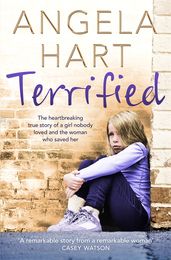Angela Hart
Angela Hart, who writes under a pseudonym, is a specialist foster carer for children with complex needs. Along with her husband Jonathan she has fostered more than fifty children. Her books The Girl Who Wanted to Belong, Terrified and The Girl Who Just Wanted To Be Loved were top ten Sunday Times bestsellers.
Books by Angela Hart
Series by Angela Hart









